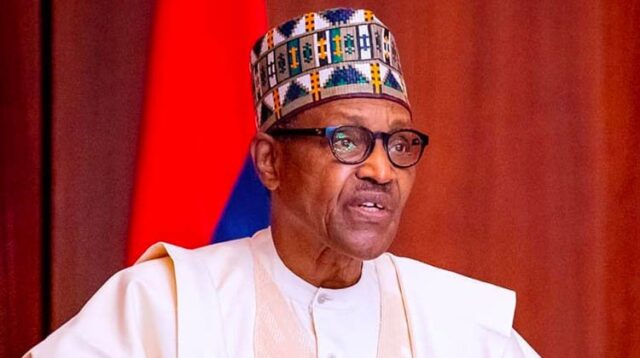For a corporation that for virtually all 44 years of its existence had remained a money guzzling and loss making organisation, it was cause to cheer when on August 27, 2021, President Muhammadu Buhari, Nigeria’s substantive Minister of Petroleum Resources, announced that the state oil giant, the Nigerian National Petroleum Corporation (NNPC), had declared a profit after tax of N287 billion for the 2020 financial year. Or so it seemed.
However a look at its antecedents and operational history cast a pall of disbelief from economists and energy experts. Since its founding, NNPC is not known to have opened its books for scrutiny and auditing. Following global pressure and public outcry, NNPC in 2018 started the publication of its financial operations. In 2019 when it published its first audited statement for 2018, the corporation incurred losses close to N1 trillion. They were reduced in 2019 to N1.7 billion.
Unlike other national oil companies in other OPEC countries, NNPC has been a loss-making entity, renowned for anomalies, undue political interference and patronage.
What calls to question the profit claim is the fact that shortly after Buhari became president in 2015, NNPC became the sole importer of premium motor spirit or petrol in the country. On March 25, 2021, the Group Managing Director of NNPC, Mele Kyari, admitted that the Federal Government had been paying as much as N120 billion to subsidise the price of petrol monthly. That amounted to N1.44 trillion in 2020 alone.
Explaining the huge subsidy and loss, Kyari said while the actual cost of importation and handling charges amounts to N234 per litre, the government is selling at N162 per liter. In effect, NNPC incurred a huge loss in every imported litre of petrol through subsidy, even though the government dubiously called it under recovery, not the subsidy that it is. With all the four refineries comatose, the refineries incurred a combined loss of N104.3 billion over a 13-month period that includes the whole of 2020 where the president claimed the stupendous profit was made.
If over N1.44 trillion was lost through subsidy on imported petrol and a further N104.3 billion through the dormant four refineries that could not refine any barrel of crude oil in 2020, how does this translate to efficiency in management that would set the stage for a declaration of stupendous but unrealistic profit?
Despite declaring a profit in its operations for the 2020 financial year, published audited financial statement of the Nigerian National Petroleum Corporation, NNPC, has shown that its revenue fell by 19.76 percent in 2020 to N3.718 trillion from N4.634 trillion declared in 2019.
Despite declaring a profit in its operations for the 2020 financial year, published audited financial statement of the NNPC, has shown that its revenue fell by 19.76 percent in 2020 to N3.718 trillion from N4.634 trillion declared in 2019.
Further highlights of the financial statement revealed that while the Corporation’s group financial position increased in total current assets by 18.7 percent compared to that of 2019, its total current liabilities increased by 11.4 percent within the same period.
The group’s working capital remained below the line at N4.56 trillion in 2020 as against N4.44 trillion in 2019, the report stated.A statement by the Corporation had attributed the fall in revenue to the decline in the production and price of crude oil due to the global impact of the Covid-19 pandemic.
Further highlights of the financial statement revealed that while the Corporation’s group financial position increased in total current assets by 18.7 percent compared to that of 2019, its total current liabilities increased by 11.4 percent within the same period.
The group’s working capital remained below the line at N4.56 trillion in 2020 as against N4.44 trillion in 2019, the report stated.
NNPC’s “profit” came at a time there has been no change in its status as a fuel importing organisation despite having four oil refineries that have for over 15 years remained dormant.
Announcing the controversial profit claim, Femi Adesina, the president’s spokesman, attributed it to “this administration’s commitment to ensuring prudent management of resources and maximisation of value for the Nigerian people from their natural resources.” But for more than 15 years, the nation’s four refineries in Port Harcourt, Warri and Kaduna have comatose, barely producing any litre of refined products. Under this state, more than N10 billion is spent monthly on the four refineries for salaries and emoluments of thousands of redundant staff.
An April 19, 2021 report had shown that the total revenue generated by the NNPC from crude oil and gas exports plunged by 45.98 percent in 2020 amid the COVID-19-induced collapse in price and demand. According to the report, Nigeria’s revenue from the export of crude oil and gas fell to $2.62 billion in 2020 from $4.85 billion in 2019. It added that proceeds from the sale of domestic crude oil and gas also dropped to N1.54 trillion in 2020 from N1.57 trillion in 2019. The year 2020 was characterised by global decline in the economy with some businesses actually going under. It was the year the NNPC decided to declare a bogus transition from record loss to record “profit”.
“Basically, what the Federal Government has done with this strange profit declaration is to redefine, albeit vainly, the meaning of efficiency in business and profit making. NNPC is the sole importer of petrol, it determines the landing cost, incurs huge losses through subsidy on every litre, decides what to remit to the Federation Account and declares huge profit. Its like voodoo,” an industry operator told Business and Maritime West Africa.
However, Atedo Peterside, a prominent banker and former managing director of Stanbic-IBTC Bank, was less sparing. He directly accused the NNPC of manipulating its financial records to paint a rosy picture, saying that “there is an allegation that NNPC dipped their fingers in the Federation cookie jar in order to announce bumper 2020 profits. They should come clean and publish details of all dividends received by them and tell us which ones they recently diverted from the Federation to themselves.”
In a statement signed by Chief Willy Ezugwu, Secretary General, the Conference of Nigeria Political Parties (CNPP), the group described as bogus and doubtful the N287 billion profit after tax the corporation declared for the year 2020.
“During the year under review, most businesses globally suffered operational setbacks which also negatively affected Nigeria’s oil export as proceeds from the sale of domestic crude oil and gas dropped to N1.54 trillion in 2020 from N1.57 trillion in 2019. The magic that led to eventual declaration of profit after tax in 2020 for the first time in its 44-year history requires explanations.
“Considering the fact that the NNPC is planning to list its shares on the Nigerian Stock Exchange and the timing of the passage and signing of the Petroleum Industry Bill (PIB) into law, the sudden declaration of huge net profit looks more like a script.
Indeed, against the backdrop that the recently promulgated Petroleum Industry Act (PIA) that stipulates the transfer of 30 percent of NNPC’s yearly profit be set aside for oil exploration in the “frontier basin” which aggregates to legislating N80 billion of the N270 billion profit be compulsorily set aside for the long running search for crude oil deposits in the Chad basin, CNPP’s stance that the entire saga was scripted has gained currency.
With all the refineries dormant and NNPC venturing into loss making monopoly of refined products importation, the claim to overnight transformation into a profit making company of stupendous proportion lacks any foundation.
For the dust of conspiracy, underhand dealing and cooking of books, NNPC will have to come clean and open its books to independent and unrestricted public scrutiny for its








